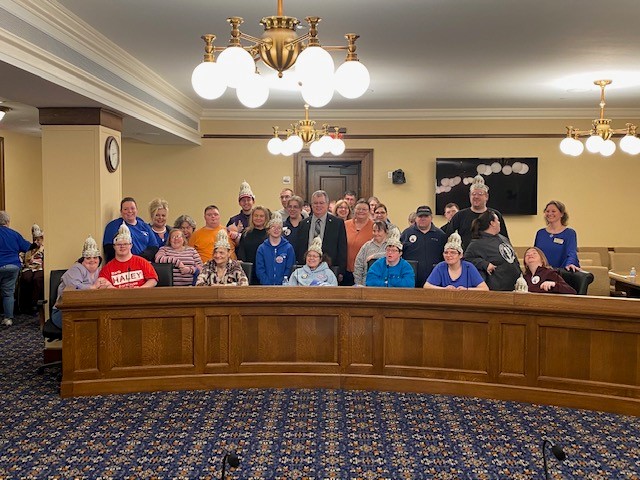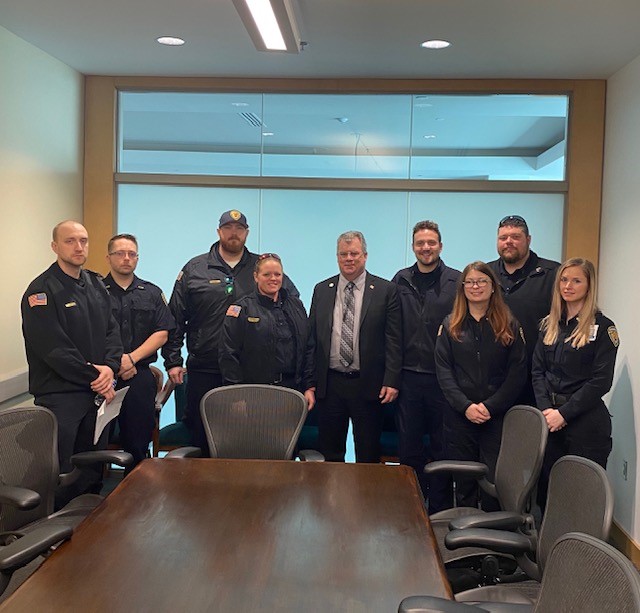Minnesota Senate passes insulin reform for all Minnesotans
After more than twelve months of discussion, analysis, and debate, I am pleased to say that we have passed a strong insulin safety net bill with a unanimous vote. This program is designed to be available for all who need it and includes fulfillment of both urgent and ongoing needs for patients.
Most importantly, this bill provides 30 days of emergency insulin to anyone regardless of income as long as they are Minnesota residents and in need of the medicine. All insulin in the our plan is provided by the insulin companies with affordable co-pays. A long-term component to the program helps patients afford their insulin with a 90-day supply for no more than a $25 co-pay.
I am proud of the work that led to this sustainable and affordable insulin plan. As this bill moves to conference committee and the Governor’s desk, we will continue to advocate for excellent access to care for Minnesotans in need of the life-saving medicine.
Senator Jensen’s bill prioritizes renewability, portability, and prompt implementation. A conference committee with house members is expected to begin meeting in the next few days.
Minnesota Legislature passes emergency coronavirus funding
On Monday, we approved a bill to provide emergency funding for combating COVID-19 in Minnesota. The bill, authored by Senator Jerry Relph (R-St. Cloud) and co-authored by myself among others, passed with bipartisan support, 56-0.
We have prepared for the worst to guarantee Minnesotans have access to excellent care if this virus keeps spreading. Much needed testing and equipment will be available with this appropriation. We were able to find a bipartisan agreement – putting Minnesotans before politics. We encourage Minnesotans to continue utilizing the recommended precautions and we appreciate all the healthcare professionals working to keep us healthy!
Senate File 3813 appropriates $20.899 million to the Public Health Response Emergency Account. In the event the funds go unused or are reimbursed by the federal government, the money will automatically transfer back to the general fund. The emergency funds will allow the Minnesota Department of Health, in collaboration with state and federal officials, to support disease investigation, monitor potential cluster outbreaks, provide information to the public, coordinate statewide response activities, and conduct laboratory analysis. Top legislators, the administration, and public health officials remain in frequent contact.
Your best sources for up-to-date information are the Minnesota Department of Health (MDH) and the Centers for Disease Control (CDC) websites.
MDH: Prepare and Prevent COVID-19
MDH: Situation Update for COVID-19
Minnesota Senate approves emergency disaster relief funding
The Minnesota Senate last week passed its first bill of the 2020 legislative session, a $30 million appropriation for the state’s Disaster Assistance Contingency Account. The bill, authored by Senate President Jeremy Miller (R-Winona) and co-authored by myself among others, allows the state to provide quick assistance to help local communities recover from spring flooding, severe thunderstorms or windstorms, tornadoes, or other natural disasters, without the need for a special legislative session.
When disaster strikes, we will be prepared to support our fellow Minnesotans. Communities in our district know all too well the devastation flooding can bring about, so I am thankful we are taking care of this now.
Constituent Meetings this Week

Meeting with Great River Homes of Wabasha during Disability Services Day at the Capitol.

Meeting with constituents representing Minnesota Coalition for the Homeless during Homeless Awareness Day at the Capitol.

Meeting with constituent Minnesota Department of Corrections guards during their Day at the Capitol.
Thank you for reading and I hope you will continue to reach out with your ideas and opinions at sen.mike.goggin@senate.mn or 651-296-5612.
